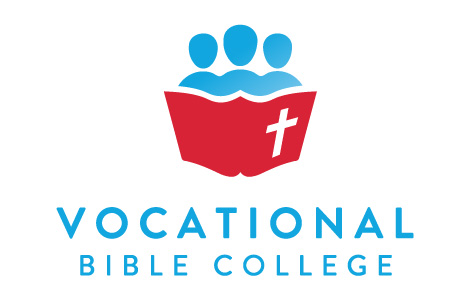What ‘everyday’ leadership can look like
/Having everyday leaders in place – with the heart and experience to reach, disciple and train other everyday people – is crucial to the health of our Reformed evangelical churches.
Here are some stories of people involved in this vital work.
John
Vocational Bible College graduate, Anglican minister and church-planter John is committed to making sure everyday people are trained for leadership.
John never expected to end up in full-time ministry, let alone church planting.
He owned a commercial window-cleaning business and was teaching SRE one day a week in a local primary school. He loved teaching little kids about Jesus, and this gave him the desire to know more about the Bible – especially as he hadn’t been taught about it as a child.
After trying out a few different options for theological study, John was told about VBC.
At that stage, he had no intention of selling his business or moving into ministry. He just wanted to build his biblical knowledge.
John says he was ‘hooked straight away’ when he did a subject with me at VBC, because I was teaching in a way that was similar to the way he had learned his trades at TAFE. John describes it like this: ‘It was side-by-side learning; it was round table learning.’
He also had a mentor in his church who helped him put into practice what he was learning and grow in godliness.
It wasn’t long before John realised that his training at VBC would turn into a lot more than growing his knowledge of God’s Word – with perhaps a little help from me! At the end of his first semester, I tapped him on the shoulder and said, ‘Look, you should think about doing this more seriously.’
So John and I began meeting weekly before college so I could mentor him. We worked through some things from his childhood that he needed to deal with. John says, ‘VBC ended up being a place where not only was I learning about the Bible, but also growing in my character as well.’
Eventually, John ended up selling his window-cleaning business and undertaking a ministry apprenticeship through his local church.
After gaining experience as an assistant minister in Peakhurst, Sydney and being ordained as a Deacon in the Sydney Anglican Diocese, John and his family are about to take a new step of faith and plant a church:
I’ve been trained under Stuart Maze, and he’s done a really great job of helping me to be a bit more proficient with preaching and pastoral care and running a church. And now I’ll be planting myself in Warilla North starting next month.
His hope will be to reach the 10,000 people who live in the area, share the hope of Jesus with them, and disciple and train them – no matter what their educational backgrounds may be:
I want to train everyday people to be leaders in my church. I want to find church planters from the everyday people. It’s not going to be easy, but we’re going to trust God and just welcome people in.
Bruce
Bruce has seen first-hand how having an everyday leader in a church can attract other everyday people. As he began ministering as Senior Pastor at Orange Evangelical Church, he came to an important realisation:
In a country town, we were quite a professional church – we didn’t have a lot of tradies. Because I’m basically a tradie, we started to attract everyday people like myself. I saw the need to be training them.
Bruce came from a farming background and completed a carpentry apprenticeship after school. After serving as a lay leader for many years in his local church, Bruce was convicted to train as a pastor. He headed to Sydney to go to theological college.
It wasn’t easy:
I knew that I wasn’t dumb, but I’d never written an essay in my life. I’d lived in the country all my life. It was a big change – from working hard physically every day, to sitting down and thinking every day, and learning how to write.
After graduating, Bruce ended up in pastoral roles at Anglican churches in Tamworth and Warialda. Nine years later, he accepted a role as Senior Pastor at Orange Evangelical Church.
And as everyday people began to join the church, Bruce set about finding the best way to train them in leadership.
He soon realised the courses he was offering weren’t quite the right fit for this demographic:
The academic tilt to it just scared them off. They didn’t want to do exams. They didn’t want to write essays. They were a bit daunted by that.
I met Bruce while he was grappling with how to find a different way to provide training for these everyday people – and the rest is history. He’s been on the Board of Vocational Bible College from the beginning.
Bruce’s ministry to tradies and other everyday people – including making sure they are among the leaders in church – is an example of the Great Commission in action. As Bruce says, ‘Jesus made disciples who made disciples who made disciples – and every one of us needs to extend our discipleship past ourselves.’
This article is one of a series that I’ve written about making disciples of ‘everyday people’.
It can be read on its own, but if you’d like to gain a greater understanding of how my thoughts around this important topic have developed, you may wish to read the full series of articles in order.
All Scripture quotations, unless otherwise indicated, are taken from the Holy Bible, New International Version®, NIV®. Copyright ©1973, 1978, 1984, 2011 by Biblica, Inc.™ Used by permission of Zondervan. All rights reserved worldwide. www.zondervan.com The “NIV” and “New International Version” are trademarks registered in the United States Patent and Trademark Office by Biblica, Inc.™
